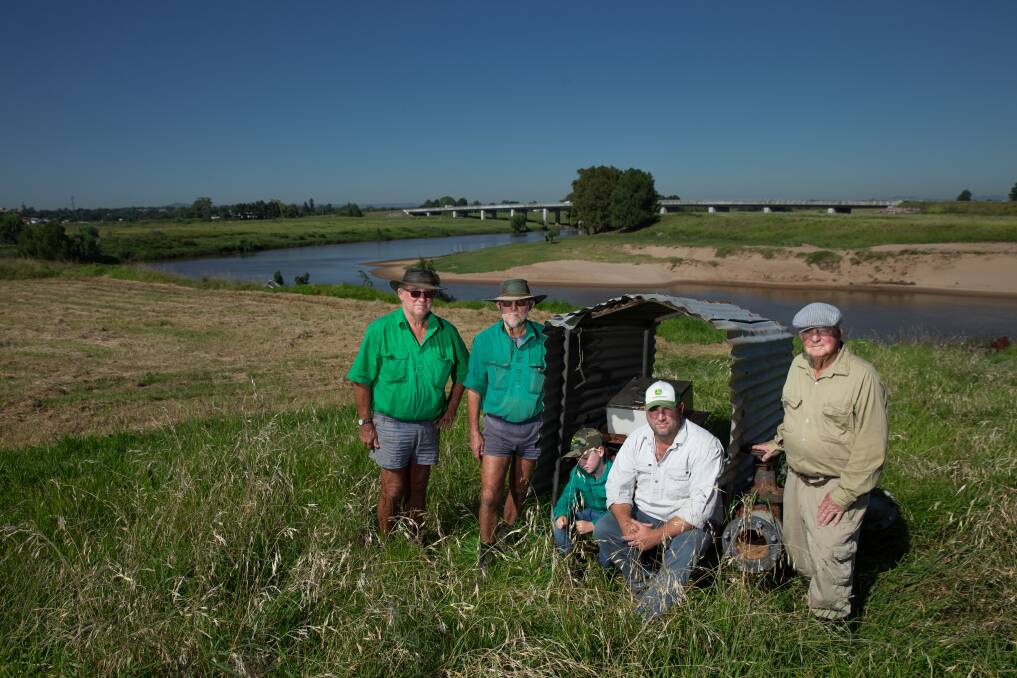
For 91 years,the Osborn family have harvested a livelihood and a way of life from their land by the Hunter River at Pitnacree.
With that river water, along with the rich alluvial soil and a lot of hard work, the Osborns have grown potatoes, pumpkins, watermelons, corn and lucerne for markets near and far, including in Sydney and Newcastle.
"It's everything in my business," said 92-year-old Dal Osborn of the river.
Dal's father began cropping by the river, and, in the process, started a family tradition that has continued for four generations so far.
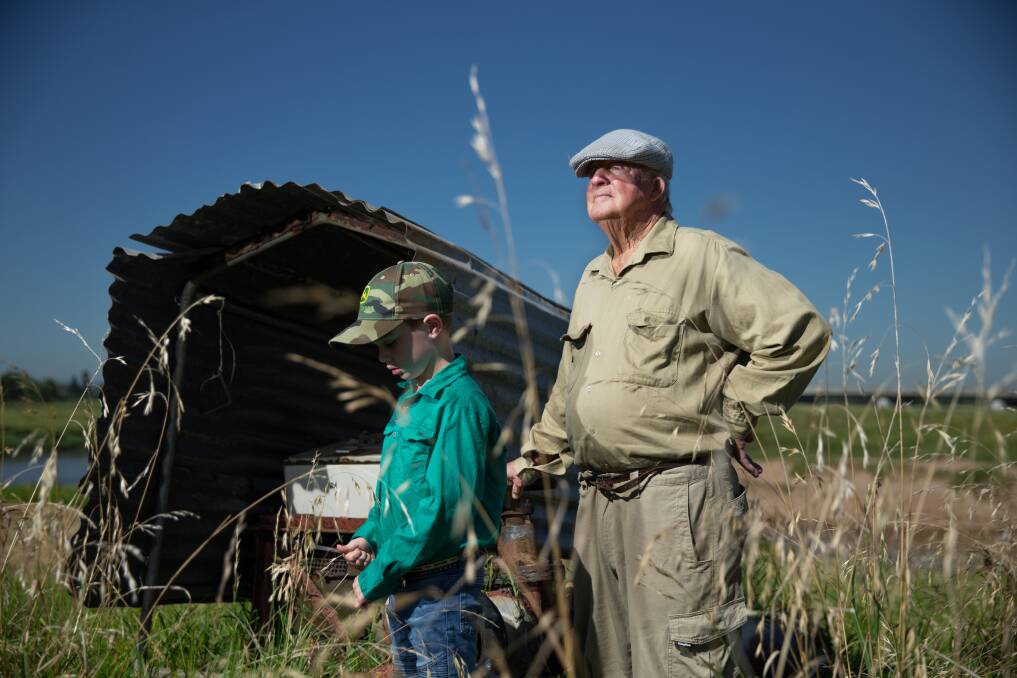
But now a NSW government proposal to change the rules on water usage has the Osborns fearing their farming future could run dry.
"If this comes into play, we can't continue to farm the way we have previously, it changes the viability and the way we're doing it today," said Brahm Osborn, Dal's grandson and a fourth-generation farmer.
"This has been in our family for such a long time," said Sam Osborn, Brahm's wife. "It would be devastating if we can't keep doing what we love."
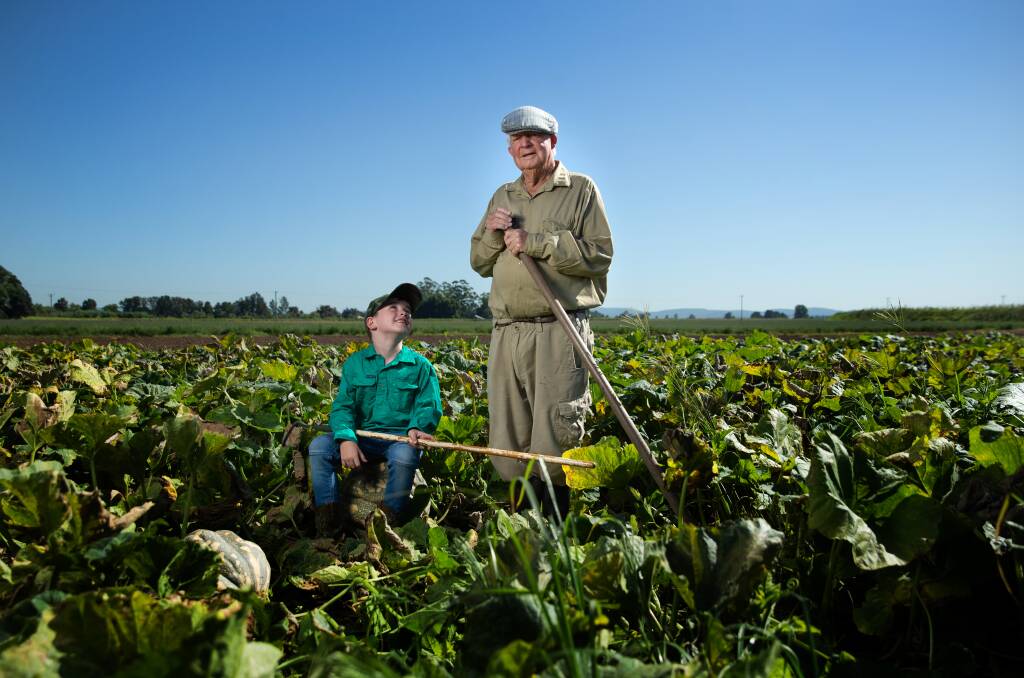
What the Osborns, and other farming families and enterprises along the river's tidal pools in the lower Hunter, are concerned about is a new restriction proposed by the NSW Department of Planning and Environment in its Draft Hunter Alluvial and Unregulated Water Sharing Plan.
The department wants to introduce a "cease to pump" rule for the river's tidal pools, with the aim of combatting salinity.
Basically, when the salinity reaches a certain level, as measured further down the Hunter River near Millers Forest, the farmers will have to stop irrigating.
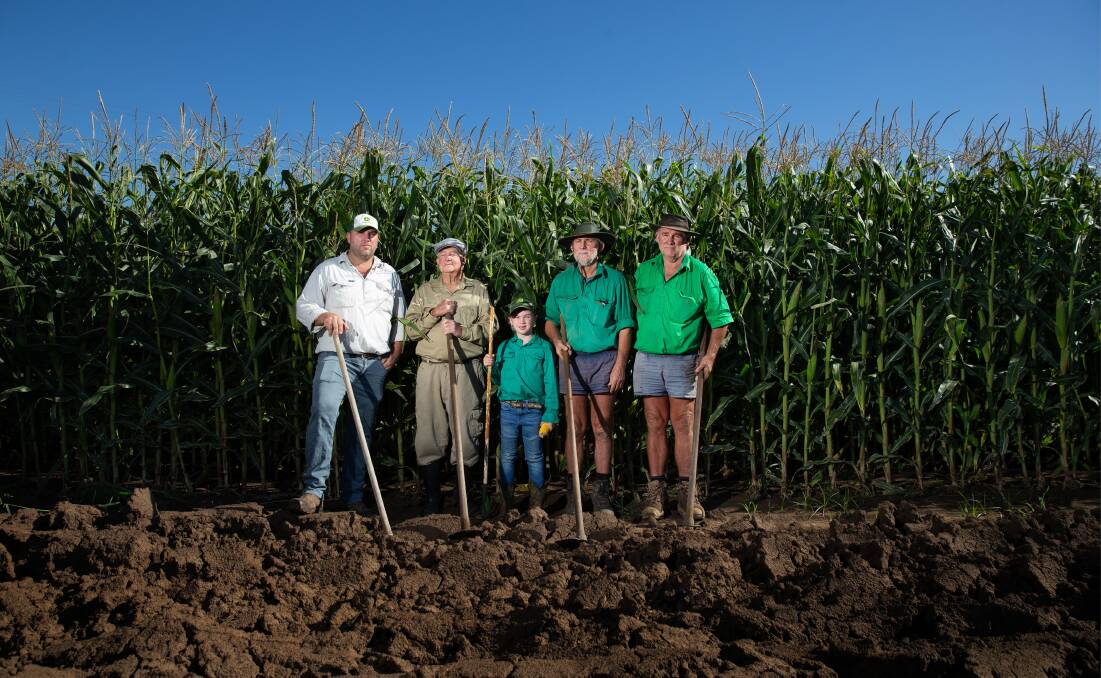
"The rule is designed to safeguard fresh water supply and bring Hunter water users in line with other water users across New South Wales," a department spokesman told the Newcastle Herald last week.
The Osborns believe the cease to pump rule would be economically devastating.
"It's huge, what they're proposing," said Roger Osborn, a third-generation farmer and Brahm's father.
He explained the crops required irrigating through the summer months, but this restriction meant for many of those days during the hot weather, farmers might not be allowed to pump. And that would cast a cloud over their ability to farm.
"It would mean no cropping the way we're going," Roger Osborn said. "The farm would be a dryland farm. It's not economically viable."

Roger Osborn said the restriction would hit 204 irrigators with licences to extract water along the local tidal pools, including turf businesses, dairies, and beef cattle producers.
"This cease to pump rule has got me perplexed why they [the department] are going about it," he said.
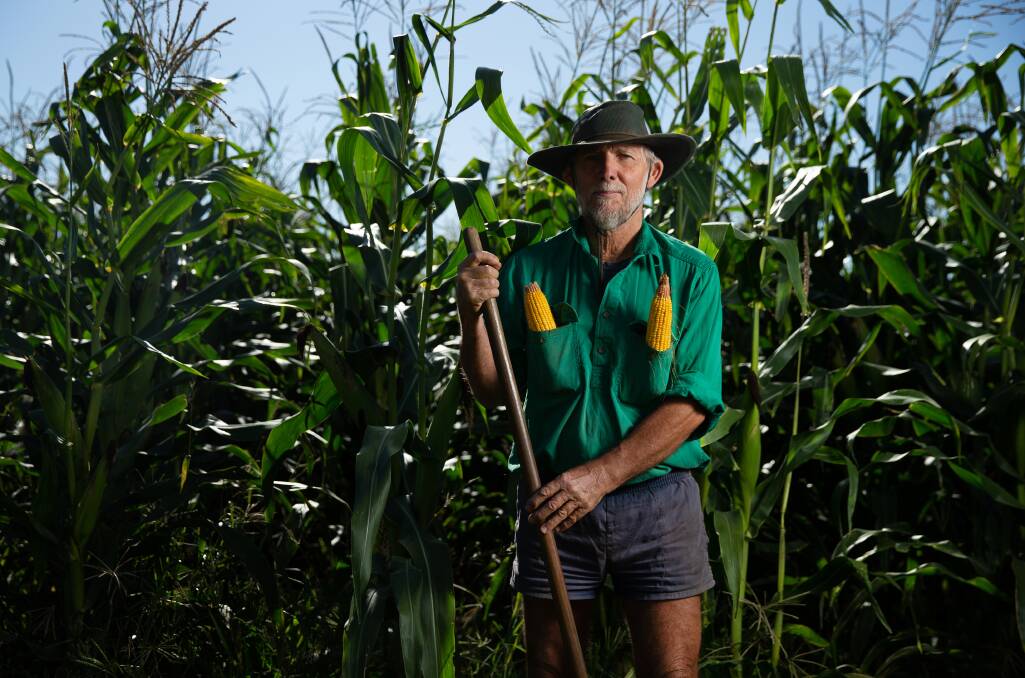
In the statement to the Herald last week, the department's spokesperson said the proposal was supported by several studies, including one by the University of NSW Water Resources Lab, which showed water extraction was causing a salt wedge to move up the river during dry periods.
"Preventing movement of the salt wedge is crucial to maintaining the supply of fresh water for downstream water users and protecting upstream ecological values from salinity levels beyond their natural tolerances," the spokesperson said.
However, Roger Osborn countered that the farmers took great care of the river, since their livelihood was tied to it.
Furthermore, Mr Osborn said, he regularly tested the water for its salinity levels, to determine whether to irrigate or not.
"We've been managing the salinity of the river here, according to the salt sensitivity of the crops, and it's been a sustainable practice over the years," Roger Osborn said.

His son said there needed to be more research done on the need for, and the impact of, the restriction, and for more empathy from the department.
"To me, they haven't considered the long-term effects," Brahm Osborn said.
A group called Lower Hunter Agricultural Water Users Incorporated has launched a petition against the cease to pump rule.
The petition has attracted about 1100 signatures.

The petition questioned what difference the rule would make to the river's health, arguing the farmers extracted comparatively little water.
"It seems extraordinary that stopping these farmers from extracting 23,000 ML out of a total extraction of 622,000ML in the Hunter catchment will 'save' the health of the Hunter River estuary," it stated.

The water users' group is also hosting a public meeting on Friday at 5pm at Bolwarra.
Sam Osborn said this was not only a farmers' issue, arguing it would flow on into consumers' lives. For it would affect the "price and availability of fruit and vegetables, turf and hay . . . Everything you rely on".
Dal Osborn said, "You can't make food for local people and animals without irrigating."
As parents of two children, Brahm and Sam Osborn are fighting for the future and a fifth generation of family farmers.

Brahm Osborn said his seven-year-old son, Dallas, loved farm life, including working with his great grandfather on the ground the family has called home for almost a century.
"I want to continue that on, and give my kids the same opportunity I've had," said Brahm Osborn.
The department has said the public could provide feedback on the draft water sharing plan, including the cease to pump rule, until February 27.
"Our future is in their hands," said Brahm Osborn.








